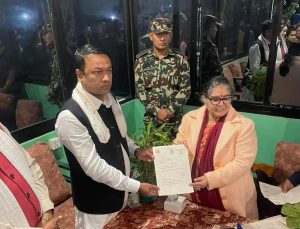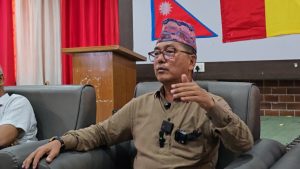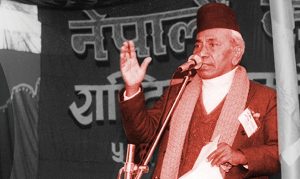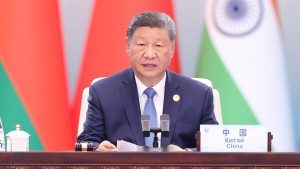Kathmandu, — Nepal’s ruling CPN (Maoist Centre) is facing a major political and legal test after the Supreme Court ordered a fresh investigation into a conflict-era case linked to Agni Prasad Sapkota, the party’s Vice Chairman and former Speaker of the House of Representatives.
Emergency Maoist Meeting at Prime Minister Dahal’s Residence
An emergency meeting of top Maoist leaders is currently underway at the Khumaltar residence of party chairman and Prime Minister Pushpa Kamal Dahal ‘Prachanda’. The session aims to assess the legal ramifications of the court ruling and strategize a response amid mounting political pressure.
According to party insiders, the leadership is particularly concerned about the ruling’s long-term impact on transitional justice, as well as its potential to reignite unresolved tensions from the country’s violent Maoist insurgency (1996–2006).
Supreme Court Orders Reinvestigation into 2005 Abduction Case
On Wednesday, the Supreme Court issued a writ of certiorari, instructing authorities to reopen the investigation into the 2005 abduction and killing of Arjun Lama. Lama was allegedly abducted by Maoist cadres during the height of Nepal’s civil war, and Agni Sapkota has long been accused of involvement in the incident—allegations he firmly denies.
The case had been closed in 2012 under a Cabinet directive issued by then-Prime Minister Baburam Bhattarai, which ordered that no further legal action be taken. However, the Supreme Court has now nullified that decision, citing the constitutional necessity to investigate serious human rights violations, regardless of political agreements.
“No Mandamus—Scope Remains for Truth Commission,” Says PM’s Secretariat
In response, Govinda Acharya, chief of Prime Minister Dahal’s secretariat, clarified that the court’s order was not a writ of mandamus, which would have mandated immediate prosecution. Instead, the writ of certiorari allows for a legal review and potential investigation through Nepal’s transitional justice mechanisms.
“This ruling leaves room for the Truth and Reconciliation Commission (TRC) to take the lead rather than the criminal justice system,” said Acharya, adding that it aligns with Nepal’s ongoing transitional justice process.
The Maoist Centre sees this as a legal window to resolve conflict-era allegations in a way that prioritizes restorative justice and national reconciliation.
Court Rejects Separate Petition for Immediate Prosecution
In a related verdict, the court dismissed a separate petition filed by ten human rights activists calling for Sapkota’s immediate prosecution in a criminal court. The Maoist Centre has interpreted this as a partial legal victory, reinforcing the legitimacy of transitional justice institutions like the Commission of Investigation on Enforced Disappeared Persons (CIEDP) and the TRC.
Party officials argue that the decision demonstrates the court’s balanced approach—acknowledging victims’ rights while upholding Nepal’s transitional legal architecture.
Political Crisis Deepens with Parliament Disruptions and Visa Scandal
The Maoist Centre is also grappling with intensifying political tensions in Parliament, where opposition parties are disrupting sessions and demanding the resignation of Home Minister Ramesh Lekhak over an alleged visit visa scandal.
Today’s emergency meeting is expected to craft a dual strategy—one that addresses the Sapkota ruling while also managing internal governance challenges and opposition pressure.
Maoist Party Awaits Full Court Text Before Official Statement
While discussions are ongoing, the Maoist leadership has decided to withhold any official statement until the full text of the court ruling is made public. Senior party leaders have emphasized the need for a careful legal review before determining the next steps.
The reopened case against Agni Sapkota, one of the Maoist movement’s most high-profile figures, is now seen as a litmus test for Nepal’s fragile transitional justice system.
Legal Experts Say Ruling Could Set Historic Precedent
Legal analysts believe this verdict could serve as a critical precedent in how Nepal handles conflict-era crimes, especially those involving senior political figures. It marks a significant moment in the country’s ongoing struggle against impunity and its commitment to justice and accountability.






